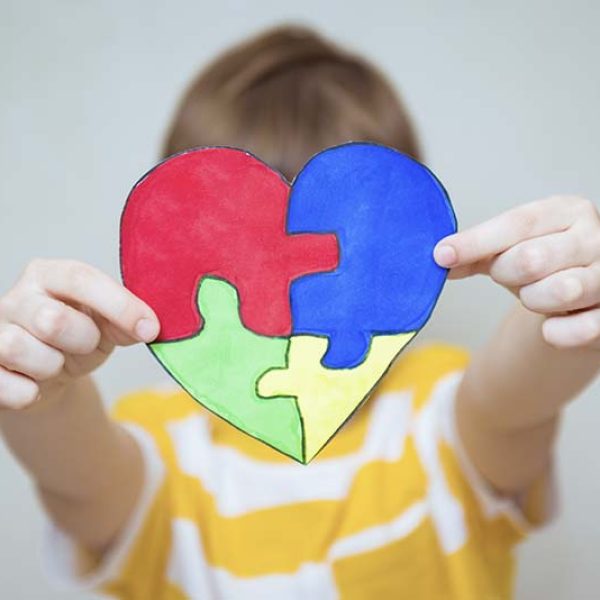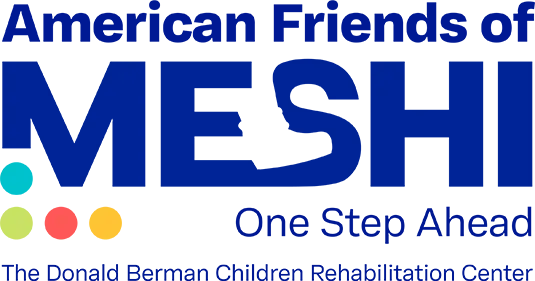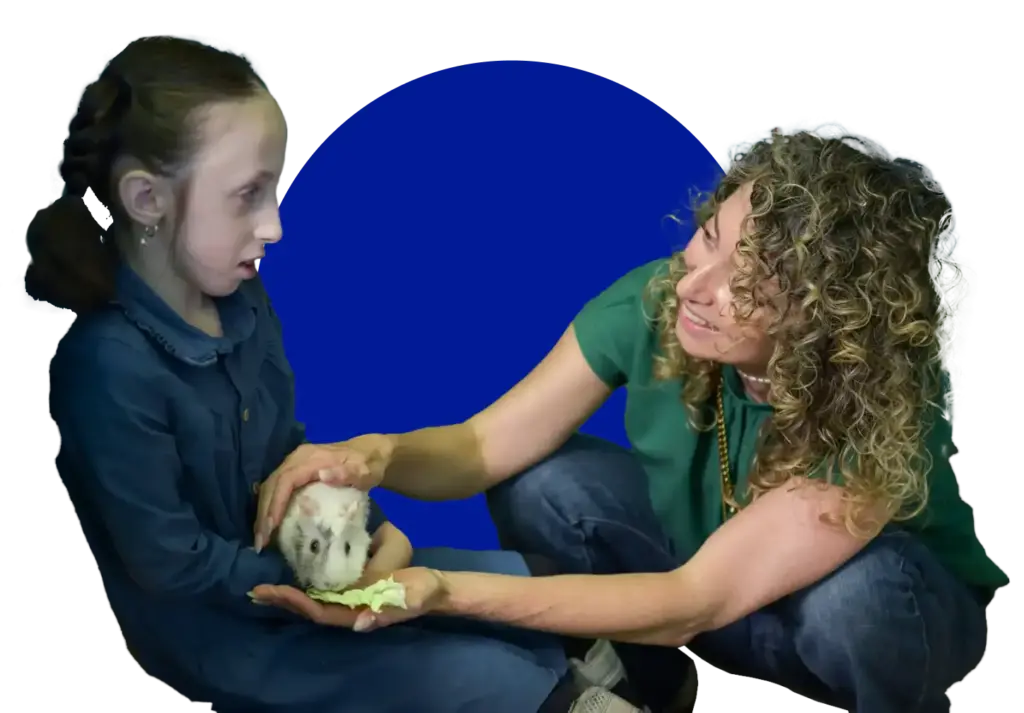
דף הבית 〱 Areas of Activity 〱 Emotional Resilience
Emotional Resilience
Within Meshi’s holistic circle of care, emotional-resilience teams support each child’s emotional, behavioral, and social development—enhancing their autonomy, self-regulation, and adaptive coping skills.
Meshi’s emotional-resilience teams foster mental well-being—both for each child individually and for the organizational system as a whole. Their work is grounded in a key principle of Meshi’s multi-dimensional approach: one’s emotional state profoundly influences overall functioning, well-being, and success in developmental, rehabilitative, and recovery processes.
Within this framework, the teams develop rapid, goal-oriented responses across all levels of intervention—from promoting overall mental well-being and resilience, to preventing high-risk situations, and through identifying, diagnosing, and treating difficulties with diverse therapeutic methods. Interventions are carefully tailored to each child’s age, cognitive level, physical condition, and life context. They are fully integrated across all therapeutic and educational domains, and implemented through personalized, group-based, and system-wide programs.
Meshi’s emotional-resilience programs aim to facilitate each child’s functional and developmental progress by:
- Providing consistent, responsive support to children, families, and staff
- Fostering continuous, healthy emotional development across life stages
- Developing vital life skills for proactive coping with challenges and crises
- Instilling mental and behavioral strategies for lifelong resilience
- Strengthening self-reliance and autonomy by cultivating intra- and interpersonal competencies
Structure & Practice
All Meshi’s intervention programs are guided by a licensed psychologist—working closely with the center’s leadership, present in every team meeting, advising on complex cases, and conducting individual observations when needed.
Emotional and mental health aspects are further anchored in each center’s daily practice by a dedicated educational counselor—who supports policy shaping and ongoing decision-making, and provides real-time assistance to children, families, and staff. Each center’s team also includes social workers—responsible for assessing social needs, ensuring continuity of care, and coordinating with welfare and community services—and certified emotional therapists, who provide both individual and group sessions in music, play, movement, and animal-assisted therapy.
Heads of Emotional Resilience

Iris Hyman
Educational Psychologist, Early Development Center

Ayala Tauber
Educational Consultant, Jerusalem School

Miriam Karpassi
Educational Consultant, Bnei Brak School

Dorit Ben Gad
Psychologist, Binat Danielle Yeshivah
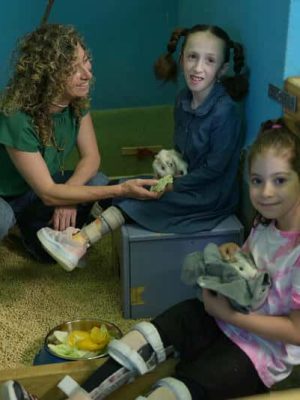
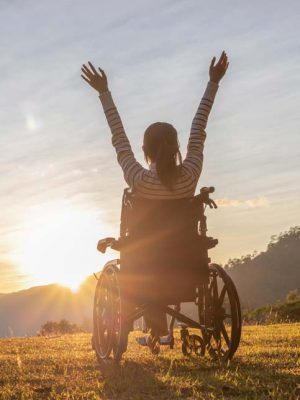
Emotional-Nurturing Environment
Meshi’s resilience teams strive to create an optimal climate between each child and their surroundings, enabling functional progress grounded in mental well-being. They extend their expertise beyond the children to staff and families—ensuring multi-dimensional emotional support across all spheres of the child’s life.
Strong emphasis is placed on training and continuously supporting the multidisciplinary teams: equipping them with tools to recognize and respond promptly to emotional needs, stress, and crises, and embedding these tools into everyday practice. Staff also receive tailored support to reinforce their own emotional and professional resilience.
Parents are regarded as full and vital partners, and the teams foster close relationships with each child’s family. They provide ongoing support and guidance for personal, familial, and parental coping—through consistent, direct involvement in developmental, therapeutic, and emotional processes, and through assistance with external services, rights advocacy, and bureaucratic challenges.
Innovation at Meshi
Preparation for Potentially Traumatic Events
To reduce trauma risk and build a solid mental foundation for rehabilitation, Meshi’s resilience teams developed an in-depth preparation program for potentially traumatic, crisis-prone events—especially interventional or medical.
The program emphasizes acquiring relevant knowledge and effective coping strategies, tailored to each child, family, and circumstance. The team guide participants through a detailed, tangible “walkthrough” of the upcoming event and its aftermath, using visual and play-based methods, including custom 3D modeling. Children and parents are equipped with practical cognitive-behavioral tools—especially LICBT (Low Intensity Cognitive Behavioral Interventions)—which can be fully personalized, even in real time.
Alongside the Post Medical Interventions program—and the parallel dedicated program for children with Arthrogryposis—this initiative completes Meshi’s holistic, specialized continuum of care for intense-rehabilitation.
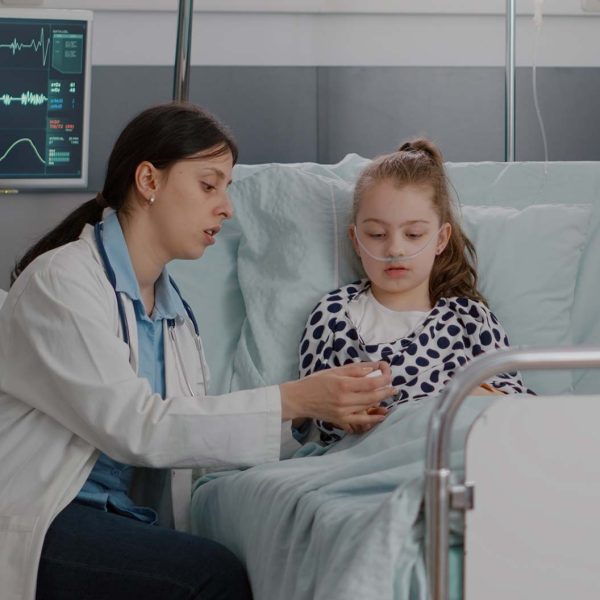
My Body, My Disability and Me: Emotional Support in Physiotherapy
My Body, My Disability, and Me is a unique multidisciplinary program developed at Meshi by the emotional-resilience, physiotherapy, and education teams. The program aims to reduce anxiety and increase motivation among children with motor and neuromotor disabilities participating in physiotherapy.
Delivered gradually by a teacher–physiotherapist team, the program provides knowledge and emotional support—helping children cope with both their disability and its physical and psychological impact. Program content focuses on discovering the body and the disability, understanding their influence on daily life, and exploring the physical and emotional experiences that accompany them—including the physiotherapy process. Both the content and the methods are fully tailored to each child’s age, cognitive abilities, specific disability, and natural curiosity.
This program complements other Meshi’s interdisciplinary initiatives for holistic care, such as the multidisciplinary feeding program and virtual reality–enhanced therapy.
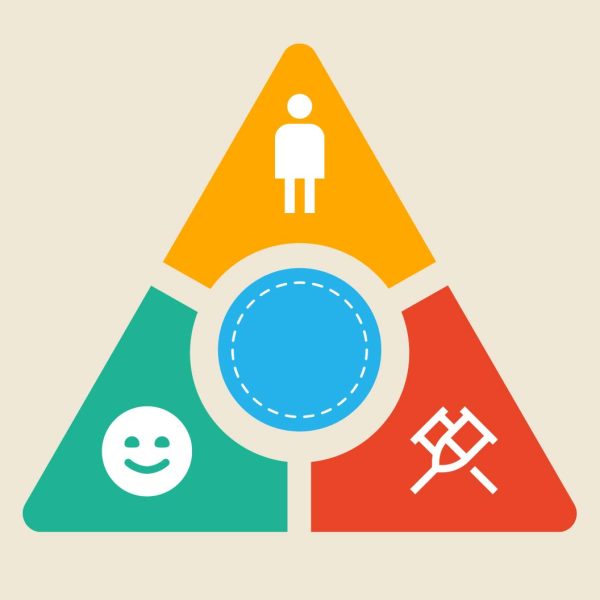
“The Spiral Continuum” for Healthy Emotional Development
At Meshi, the combination of multidisciplinary care and educational continuity has shaped The Spiral Continuum—a unique umbrella framework, offering a comprehensive, multi-stage sequence of programs for healthy emotional development in the context of physical disabilities.
The framework weaves together goal-oriented, emotional-behavioral interventions developed specifically for the lifelong challenges of growing up with disabilities. It addresses areas such as emotional regulation, personal safety skills, interpersonal skills, and independence vs. interdependence, across every stage and environment in a child’s life. For each child, a tailored support plan is designed, aligning interventions with their developmental stage, individual challenges, and holistic re/habilitation goals.
The Spiral Continuum incorporates specialized programs for key developmental milestones and transitions—such as toilet training, inclusion in mainstream education, adolescence, trauma, and more—providing consistent, multidisciplinary support for children and their families.
